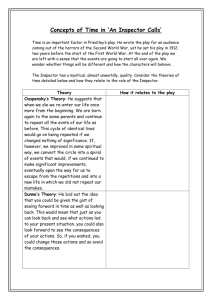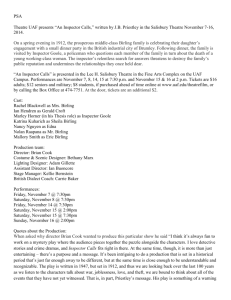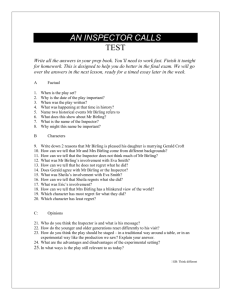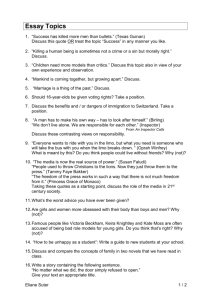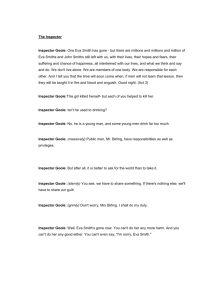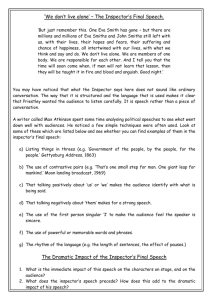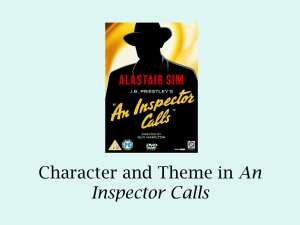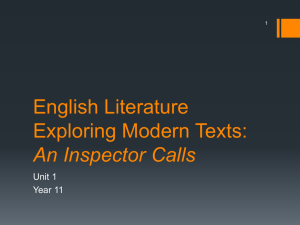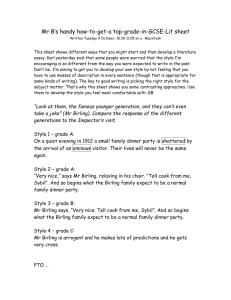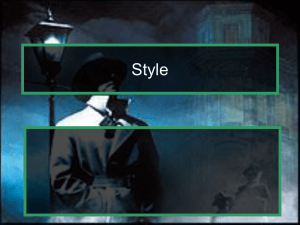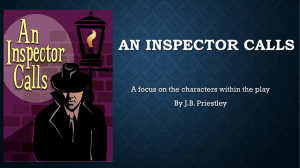What is Inspector Goole
advertisement
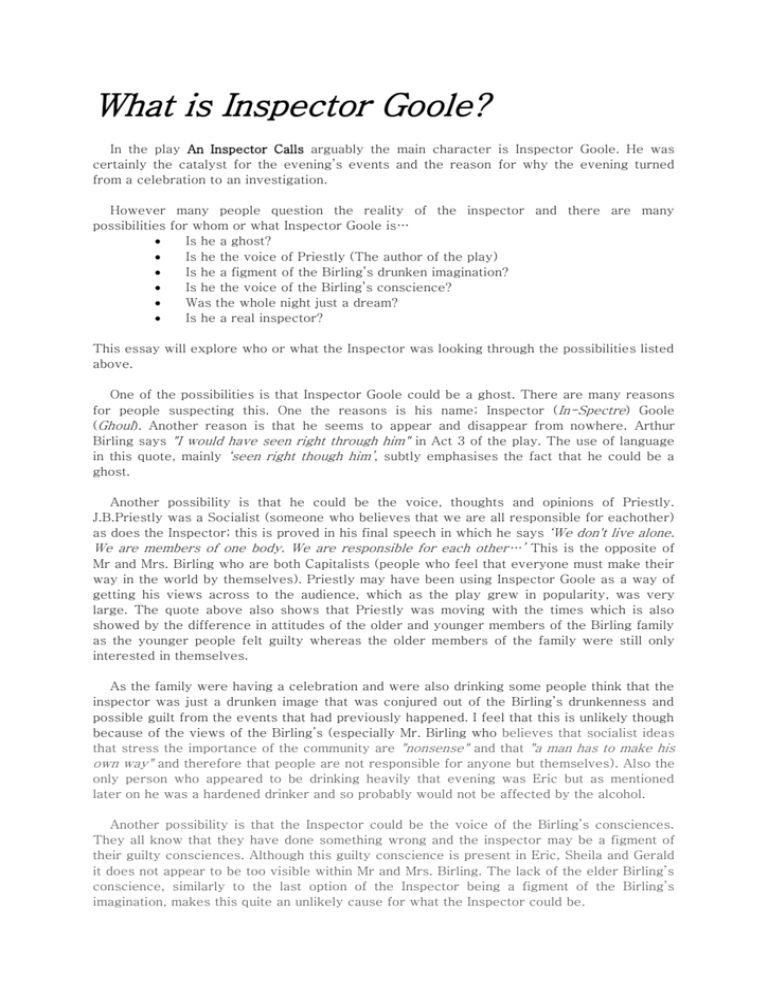
What is Inspector Goole? In the play An Inspector Calls arguably the main character is Inspector Goole. He was certainly the catalyst for the evening’s events and the reason for why the evening turned from a celebration to an investigation. However many people question the reality of the inspector and there are many possibilities for whom or what Inspector Goole is… Is he a ghost? Is he the voice of Priestly (The author of the play) Is he a figment of the Birling’s drunken imagination? Is he the voice of the Birling’s conscience? Was the whole night just a dream? Is he a real inspector? This essay will explore who or what the Inspector was looking through the possibilities listed above. One of the possibilities is that Inspector Goole could be a ghost. There are many reasons for people suspecting this. One the reasons is his name; Inspector (In-Spectre) Goole (Ghoul). Another reason is that he seems to appear and disappear from nowhere. Arthur Birling says "I would have seen right through him" in Act 3 of the play. The use of language in this quote, mainly ‘seen right though him’, subtly emphasises the fact that he could be a ghost. Another possibility is that he could be the voice, thoughts and opinions of Priestly. J.B.Priestly was a Socialist (someone who believes that we are all responsible for eachother) as does the Inspector; this is proved in his final speech in which he says ‘We don't live alone. We are members of one body. We are responsible for each other…’ This is the opposite of Mr and Mrs. Birling who are both Capitalists (people who feel that everyone must make their way in the world by themselves). Priestly may have been using Inspector Goole as a way of getting his views across to the audience, which as the play grew in popularity, was very large. The quote above also shows that Priestly was moving with the times which is also showed by the difference in attitudes of the older and younger members of the Birling family as the younger people felt guilty whereas the older members of the family were still only interested in themselves. As the family were having a celebration and were also drinking some people think that the inspector was just a drunken image that was conjured out of the Birling’s drunkenness and possible guilt from the events that had previously happened. I feel that this is unlikely though because of the views of the Birling’s (especially Mr. Birling who believes that socialist ideas that stress the importance of the community are "nonsense" and that "a man has to make his own way" and therefore that people are not responsible for anyone but themselves). Also the only person who appeared to be drinking heavily that evening was Eric but as mentioned later on he was a hardened drinker and so probably would not be affected by the alcohol. Another possibility is that the Inspector could be the voice of the Birling’s consciences. They all know that they have done something wrong and the inspector may be a figment of their guilty consciences. Although this guilty conscience is present in Eric, Sheila and Gerald it does not appear to be too visible within Mr and Mrs. Birling. The lack of the elder Birling’s conscience, similarly to the last option of the Inspector being a figment of the Birling’s imagination, makes this quite an unlikely cause for what the Inspector could be. The whole night could have simply just been a dream. But for this we have to ask whose dream it could be? As previously mentioned the Birling’s did not seem to have too much of a guilty conscience before the play started. I doubt that J. B. Priestly would have done something this complicated, as the plot had enough twists and turns already! Also this sort of plot type is quite modern and not of the time. However it could also be argued that the rest of this play was also quite different for its time and so this would not be such an odd thing for the play. The last possibility that I will explore is that he could be a real inspector however this theory is quashed when Gerald enquires at the police station and discovers that there is no inspector Goole also his interrogation technique is not like that of a police inspector, it is too harsh and almost bully like. I feel that the mystery of who is Inspector Goole cannot be solved and that not even Priestley truly knew who or what he was. But this adds to how brilliant this play is as this last mystery keeps the story, plot, characters and ideals in the mind of the audience for long after the play has finished.
